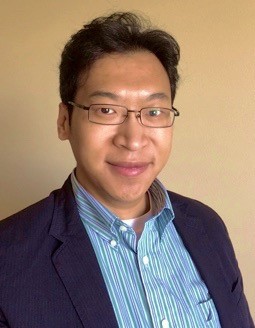Our group offers an uncommon educational experience. Some things that make us different:
- We have a global view on energy. We try to not get bogged down by trendy issues, but focus instead on what we believe has long-term impact.
- Having already successfully commercialized technology emanating from our lab, we have the entrepreneurial experience to begin every research project by asking — and answering — the question: Is there true value in this research?
- We cross a wide range of scales, addressing fundamental studies in our lab or on the International Space Station and transitioning to applied research in a three-story-high experimental facility to commercialize promising technologies.
- We perform experiments as well as both computational modeling and analytical modeling, since we have found that this combined approach leads to the greatest level of understanding.
But rather than hear from us, we thought you might want to hear current students and recent graduates discuss their experiences at LACER.

Wendong Wu
As a Ph.D. student, I was responsible for developing a laser-based measurement system to simultaneously measure elemental composition and temperature in high-temperature gaseous environments, like a flame. The process that I developed utilized a high-energy laser beam to cause laser-induced breakdown of the gas. The optical emission spectrum from the cooling plasma was used to obtain composition, and the audio spectrum was used to obtain temperature. This novel system allows for a better understanding of high-temperature chemically reacting flows, which can be used, for example, to reduce emissions and improve the efficiency of combustion processes. After receiving my Ph.D. in 2017, I joined Shanghai Jiao Tong University as an assistant professor.Looking back on my experience at LACER, I recall that while the shift to energy and aerosol research was not an easy task, Dr. Axelbaum made the whole process an enjoyable one. The key is that, as an advisor, he understands what you are capable of, and is patient in developing your potential. His valuable advice and professional attitude educated me to become an independent learner and researcher, which made me adaptable to many new possibilities. Moreover, the great people in LACER are actually a family. We shared our thoughts and emotions, helping each other out during or after work. It was a wonderful experience.

Xiaofeng Zhang
I worked in professor Richard Axelbaum’s LACER lab between 2006 and 2011 as a research assistant while obtaining my Ph.D. degree. Rich was my greatest mentor and friend, and LACER was a most delightful experience, enabling me to grow into the professional that I wanted to become.Direction — Among the many factors to consider for a Ph.D. is one’s research direction, which greatly influences career choices after graduation. LACER offers a pool of diverse research topics from which everyone can choose. The focus of Rich’s group is energy — the generation of energy from combustion and the storage of energy through developing materials for batteries. Governments, research labs and industries around the world are devoting significant resources to energy research. Professor Axelbaum would encourage students to develop their research interests, and support developing them into great projects. I had the opportunity to work with Rich closely to write proposals for funding and start a new area of research on battery materials, which paved the way to research positions in national labs and industry.
Companionship — At LACER, professor Axelbaum not only helped me develop technical skills that I will carry with me throughout my career, but also served as a great mentor and friend who has greatly influenced my life. After my graduation, our conversations focusing on career or personal advice continued. Humility, faith, optimism and caring have been stamped into my mind, which has enhanced my ability to work in dynamic, high-pressure or matrix-structured working environments. Armed with these character traits, I have been able to develop trust and friendships with my colleagues, managers and customers, eventually creating new opportunities in my career.
Entrepreneurial spirit — LACER offered a supportive environment for thinking deeply about innovation and practices, which is essential for any R&D department in industry. During graduate school, our patents for methods to synthesize battery materials were licensed to a startup company. I had the opportunity to interact with patent attorneys and investors. This experience gave me a diverse background that has allowed me to be successful in both well-established industries and a startup company.


